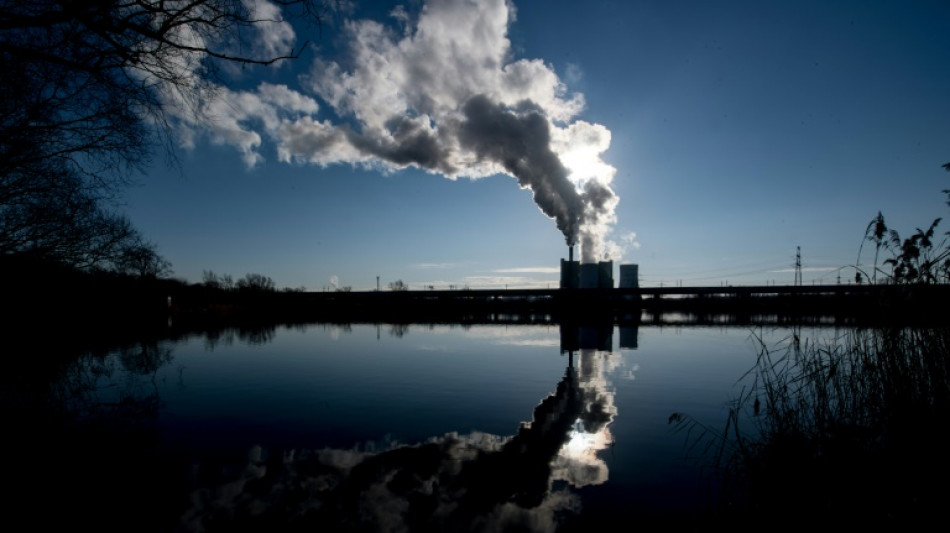
| RYCEF | -1.41% | 7.1 | $ | |
| RBGPF | -4.54% | 59.31 | $ | |
| CMSC | -0.43% | 23 | $ | |
| RELX | -0.66% | 46.462 | $ | |
| GSK | -2.01% | 33.085 | $ | |
| NGG | -3.08% | 56.245 | $ | |
| BP | 0.67% | 31.329 | $ | |
| SCS | -2.31% | 11.045 | $ | |
| VOD | -1.73% | 8.07 | $ | |
| RIO | 0.44% | 58.89 | $ | |
| AZN | 0.54% | 66.94 | $ | |
| BTI | -2.11% | 35.981 | $ | |
| BCC | -1.76% | 115.372 | $ | |
| CMSD | -0.41% | 23.305 | $ | |
| JRI | -0.41% | 12.17 | $ | |
| BCE | -2.76% | 22.995 | $ |

CO2 pollution expected to hit new record in 2023: researchers
Global emissions of planet-heating carbon dioxide are expected to rise around one percent to reach a new all-time high in 2023, the climate scientist behind the preliminary research said Tuesday.
Scientists say carbon pollution will need to be cut almost in half this decade to meet the world's targets of limiting global warming and avoiding catastrophic climate impacts.
Global CO2 emissions should be falling by around five percent this year, said Glen Peters, research director at the CICERO climate research institute in Norway.
Instead they have continued to rise, according to his research, with current expectations that the year will see emissions up between 0.5 percent and 1.5 percent.
"It would be very unlikely that emissions decline in 2023," he told AFP.
The preliminary figures show just how dauntingly hard it will be to slash emissions fast enough to meet the Paris Agreement goal of capping global warming at 1.5 degrees Celsius above pre-industrial levels.
Heating beyond that threshold risks triggering dangerous tipping points in the climate system, scientists warn.
"Each year emissions keep rising makes it all the harder to reach pathways consistent with Paris," said Peters.
The final analysis will be published in December, as world leaders meet in the United Arab Emirates for crunch UN climate talks set to be dominated by international tussling over the future of fossil fuels, the main source of CO2 pollution.
Earlier this year, the International Energy Agency (IEA) said that for the first time world demand for oil, gas and coal is forecast to peak this decade due to the "spectacular" growth of cleaner energy technologies and electric cars.
But the energy watchdog has also warned of the negative impact of increased fossil fuel investments and "stubbornly high emissions" during the post-pandemic economic rebound and the energy crisis driven by Russia's invasion of Ukraine.
Peters said clean energy should be starting to displace demand for fossil fuels.
"This does not seem to be happening in any meaningful way yet, which is disappointing," he said.
- 'Doing half the job' -
Scientists had hoped back in 2015 that emissions might be peaking, he said, then again during the pandemic there were hopes that 2019 might mark the turning point.
"Yet, here we are again, with a new peak in 2022, and yet another peak expected again in 2023," Peters said.
"My concern is that we are doing half the job, growing clean energy, and not doing the other half of the job, transitioning away from fossil fuels."
The annual "Global Carbon Budget" report for the year will be published in December and show CO2 emissions from all sources.
The calculations are based on data from monthly and quarterly IEA reports.
A.Schmit--LiLuX



